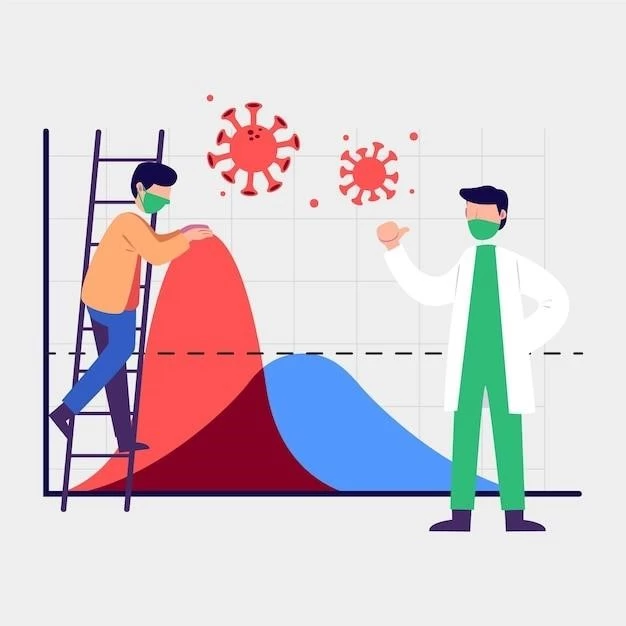Understanding Monosomy 1p22 p13 involves grasping the implications of a chromosomal deletion affecting various aspects of health and development.
Overview of Monosomy 1p22 p13
Monosomy 1p22 p13 is a rare genetic condition characterized by the deletion of genetic material on the short arm of chromosome 1. This deletion can lead to a variety of physical and developmental symptoms‚ impacting an individual’s health and overall well-being. Understanding the specific effects of this chromosomal abnormality is essential in providing proper care and support for individuals affected by Monosomy 1p22 p13. It is advised to consult with healthcare professionals and genetic specialists to gain a comprehensive understanding of this genetic disorder and its potential implications on health and development.
Symptoms of Chromosome 1 Deletion
Identifying physical and developmental symptoms linked to chromosome 1 deletion is crucial for early intervention and appropriate management. Seek medical guidance promptly.
Physical Symptoms
Physical symptoms of chromosome 1 deletion may include facial abnormalities‚ heart defects‚ kidney issues‚ skeletal anomalies‚ and growth delays. It is vital to monitor these signs closely and collaborate with healthcare providers for appropriate medical interventions and therapies tailored to individual needs.
Developmental Symptoms
Developmental symptoms associated with chromosome 1 deletion may encompass intellectual disabilities‚ speech and language delays‚ motor skill impairments‚ and behavioral challenges. Early detection and comprehensive developmental assessments are essential for implementing targeted therapeutic strategies and interventions to support developmental progress and overall well-being.
Genetic Causes of Monosomy 1p22 p13
Understanding the genetic mutations underlying Monosomy 1p22 p13 is crucial for clarifying how the chromosomal deletion manifests in physical and developmental symptoms. Consult genetic experts.
Explanation of Genetic Mutation
The genetic mutation causing Monosomy 1p22 p13 involves the deletion of genetic material on the short arm of chromosome 1. This deletion disrupts normal gene function‚ leading to the observed symptoms. Understanding the genetic basis of this condition can aid in tailoring treatment approaches and providing personalized care. Consult with genetic counselors for detailed insights.
Treatment Options for Chromosome 1 Disorders
Exploring medical interventions and therapeutic strategies can help manage the symptoms associated with chromosome 1 disorders effectively. Collaboration with healthcare professionals is key.
Medical Interventions
Medical interventions for chromosome 1 disorders may include surgical procedures to address physical abnormalities‚ medication to manage specific symptoms‚ and regular monitoring to track overall health. It is essential to work closely with healthcare professionals to determine the most suitable medical interventions for individual needs and ensure comprehensive care.
Therapeutic Strategies
Implementing therapeutic strategies for chromosome 1 disorders can involve occupational therapy‚ speech therapy‚ physical therapy‚ and behavioral interventions to address developmental delays and improve overall quality of life. Collaborate with a multidisciplinary team of healthcare providers to tailor therapeutic strategies to meet specific needs and support optimal development and well-being.

Diagnosis of Monosomy 1p22 p13
Early and accurate diagnosis of Monosomy 1p22 p13 involves genetic testing and clinical evaluations to guide appropriate interventions and support strategies. Consult healthcare providers promptly.
Diagnostic Tests
Diagnostic tests for Monosomy 1p22 p13 may include chromosomal microarray analysis‚ fluorescence in situ hybridization (FISH)‚ and genetic sequencing to identify specific chromosomal abnormalities. It is crucial to undergo these tests under the guidance of genetic specialists for accurate diagnosis and personalized care planning.
Chromosome 1 Abnormalities
Understanding the various abnormalities affecting chromosome 1 can provide insights into genetic conditions like Monosomy 1p22 p13 and their impact on health and development. Educate yourself with genetic resources.
Types of Chromosome 1 Abnormalities
Chromosome 1 abnormalities encompass conditions like Monosomy 1p22 p13‚ Trisomy 1‚ and deletions or duplications of specific regions. Understanding these variations can aid in recognizing associated genetic disorders and facilitating tailored care. Consult with genetics experts for detailed information.
Research Updates on Monosomy 1p22 p13
Stay informed about the latest findings on Monosomy 1p22 p13 through ongoing research studies to enhance understanding and potential treatment advancements. Explore reputable sources for updates.
Current Studies
Engage with current research studies focusing on Monosomy 1p22 p13 to contribute to advancements in understanding genetic conditions and potential therapeutic approaches. Participating in research can offer valuable insights and support ongoing efforts to improve outcomes for individuals with chromosome 1 abnormalities.
Coping with Chromosome 1 Genetic Conditions
Discovering effective coping strategies and leveraging support resources can significantly enhance the quality of life for individuals facing chromosome 1 genetic conditions. Seek assistance and encouragement from relevant support networks.
Support Resources
Accessing support resources such as genetic counseling services‚ patient advocacy groups‚ online forums‚ and therapy programs can offer valuable assistance and emotional support for individuals and families navigating the challenges associated with chromosome 1 genetic conditions. Connecting with these resources can provide essential guidance and comfort throughout the journey.
